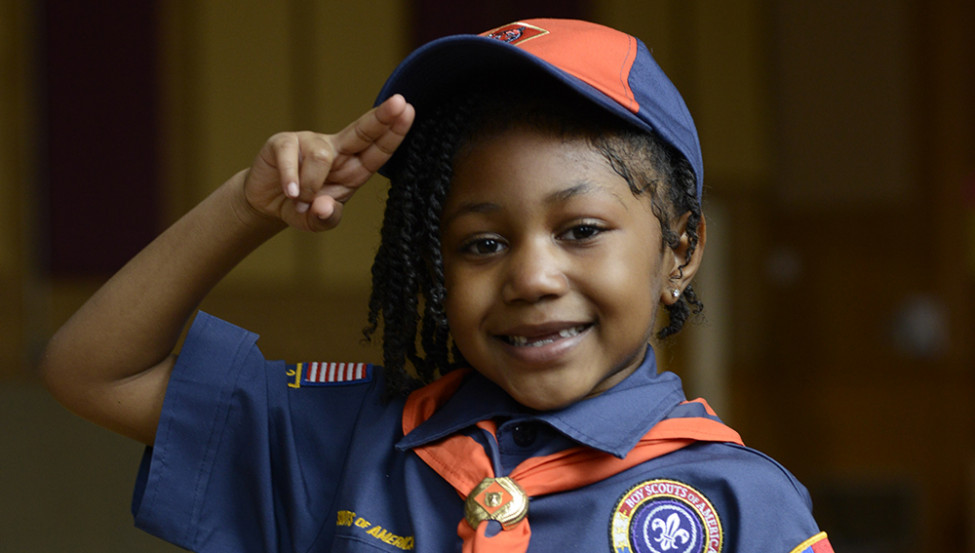
Seven Steps to Success with Virtual Program Initiatives
Article submitted by Sean Fogle, Field Director, Connecticut Rivers Council
 In our current turbulent times, certain catchphrases are ever present. We constantly hear about the “new normal,” “due diligence,” “social distancing,” and “out of abundance of caution.” One phrase for us in our movement that has not changed is “if you build it, he will come!” The corny catchphrase from the well known 1989 film Field of Dreams still rings true today.
In our current turbulent times, certain catchphrases are ever present. We constantly hear about the “new normal,” “due diligence,” “social distancing,” and “out of abundance of caution.” One phrase for us in our movement that has not changed is “if you build it, he will come!” The corny catchphrase from the well known 1989 film Field of Dreams still rings true today.
As we all plan out our strategies over the next four months and retrofit our programs to our current situation, we will have wins and losses. In the Connecticut Rivers Council, we have run no less than a dozen virtual program initiatives over the past two months. Some of them weren’t as successful as we’d hoped, but many of them have received a high level of engagement from our families. The common denominators from our more successful programs can be summed up in a Letterman-style Top Seven list.
- Be Genuine: A lot of other organizations are also pivoting to compete for a family’s time. It is important to stay genuine to Scouting’s programs. Our Virtual Camporee that took place in late April had more than 24,000 views and a reach of more than 72,000, just on our council’s Facebook page. How did we do it? We kept the program as close to the real thing as possible and supplemented family programs with our content. We had an event guide, camp staff raising flags, opening prayer, songs at meal times, unit-provided video demonstrations, cooking contests, a popcorn craft competition, interviews with subject matter experts like family medical practitioners, an entomologist (bug expert), special guests, and more. See all of our videos from the Virtual Camporee here.
- Stay Active: From fundraisers to NOVA classes, it is important to keep producing content, despite the risk of a big swing and a miss. We should not be afraid to make mistakes in coming up with something that may not work. With the costs mitigated, even a failed program idea is not bad a thing. Potential new program elements could come out of all our virtual programming now, and that is very exciting.
- Collaborate: Our Director of Support Service, Mike Brown, first initiated a specialized think tank we affectionately call the “stink tank.” A virtual meeting of the minds. Every idea that we have had came from this meeting. We make a point to meet once a week to discuss future strategies and activities. It is a low-pressure water cooler type discussion that has paid off with big dividends. We have now started to cherry pick other professionals from the national office and other councils who we see doing great things, and we share ideas.
- Communicate: With everything on high alert, it is an essential business practice to communicate early and often about anything you are doing. It is important to communicate across all levels with a consistent message on all your platforms to your stakeholders. Emails, Facebook, online meetings, and wherever you can get in front of people. Know what programs you are offering and distribute that material early and often. This has been very beneficial for external audiences to see all the good we are doing through Scouting, as well. We send out specific messaging in press releases. through our media list, and those press releases have gotten picked up every time by a media outlet. You can see examples of our press releases here and here.
- Make Content Relevant: Our families at home are suffering in unseen ways. Providing relevant content into their homes and at their own pace is key. Everything we have done has been designed around healthy living tips or ways to make life at home more enjoyable. For instance, we interviewed a professional board game designer on his favorite games to play, and we encouraged a family game night to get away from the electronics. It is important to also make it fun through the whole process. Our virtual summer camp introduced in early May is called Camp Kinda-Like-A. We have a nice theme song and all marketing for it has been light and fun. We have a couple hundred kids signed up for it already. You can watch our Spirit Week videos here.
- Be Prepared: In Connecticut, due to concerns about the pandemic, the state government has prohibited overnight camping and has placed restrictions around day camp. While we were prepared well ahead of time for our camping season, when we were forced to cancel our original plans, we had already developed a solid alternative plan as a contingency. I give a lot of credit to our camp team that had to close all our operations but also simultaneously opened up another another option for our Scouting families to provide complete programs, partner with other councils, and even stand up a virtual trading post. Check out the website for Camp Kinda-Like-A here.
- Use your Resources: For all our programs, we really tried to involve as many people as we could. I have personally asked college friends who are now doctors, my former den mates who have interesting careers, and other local institutions to partner on creating virtual content. A huge success for us has come from local sports teams, museums, and organizations that have not partnered with us in a long time but who are now willing to partner. It’s been great residual marketing for us locally because museums have gone live on their pages to run program for our Scouts. On top of that, our normal avenue for program delivery is still available. Our volunteers are doing amazing things out there still, sharing program content on platforms like Zoom and Facebook Live. They bring virtual den meetings, NOVA programs, merit badges, trainings, and more to our audiences. We have also been the beneficiary of specialized videos from the national high adventure bases that have gone live exclusively for us. We are constantly on the lookout to see what other councils and other organizations are doing. Quoting Pablo Picasso, “Good artists copy. Great artists steal.” I personally follow 75 councils’ social media accounts, and I make a point to look at all of them weekly. I really admire a lot of their virtual programs, and I encourage them to “steal” ideas from us, as well!
Our roadmap for virtual programs is being forged now. We are constantly tinkering and coming up with a variety of initiatives for all of our youth and adults. On behalf of the Connecticut Rivers Council “Stink Tank,” thanks for doing all sorts of great virtual programming out there, and I hope that these suggestions help.
We must build it, and they will come, but we have to build it so they stay, as well.
Scouting Wire would like to thank Sean for submitting this article.



